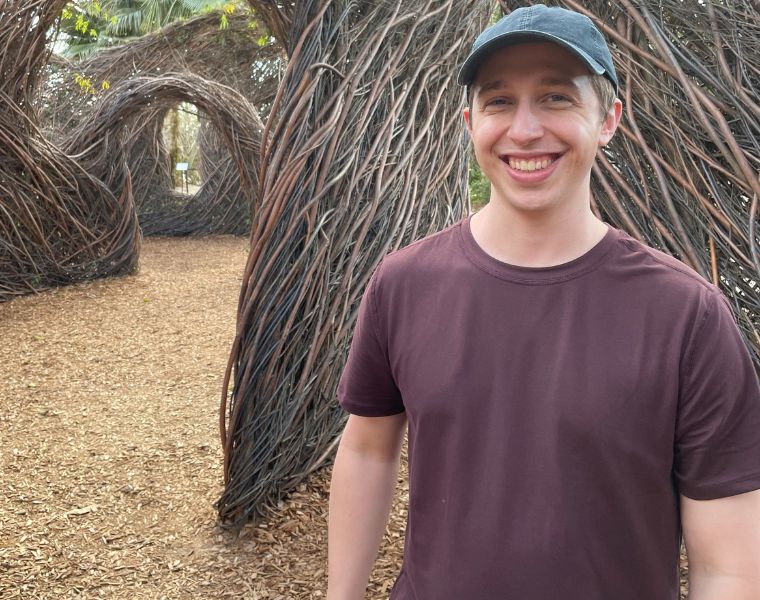During his first week as an undergraduate student at Case Western Reserve University, Eric Mosher made a pivotal decision: he joined a lab. That experience laid the groundwork for a four-year research experience as he earned his bachelor’s degree in biochemistry with a minor in chemistry, graduating in 2017.
Mosher continued his education with a PhD in pharmacology from Johns Hopkins University—for which he credits CWRU’s Career Center and Undergraduate Research Office for helping him prepare.
And in September 2022, he had a homecoming of sorts. Mosher returned to Case Western Reserve, this time as a postdoctoral scholar in the Department of Pharmacology working alongside School of Medicine Professor Derek Taylor.
As a postdoc, Mosher’s work involves the study of the molecular mechanisms of how human papillomaviruses (HPV) cause cancer, specifically by characterizing the interactions between viral and host proteins using biochemistry and structural biology. The goal of this research is to glean new information to allow for the rational design of new drugs to treat HPV-related cancers.
Mosher is an active member of the campus community, serving as the chair of the CWRU Postdoctoral Association’s Professional Development Committee and as the postdoc representative on the Faculty Senate Committee on Graduate Studies and on the Faculty Senate Committee on Campus Planning, Facilities, and Space. In these roles, Mosher has led several initiatives, such as a Career Series, CV/resume writing workshops, and the upcoming Biophysics Week Celebration on March 20.
Off campus, he is an education associate for the American Society for Biochemistry and Molecular Biology (ASBMB), through which he contributes to the design and scoring of the ASBMB certification exam. He also volunteers at the Northeast Ohio Regional Science Olympiad Tournament and as a scientific officer with Rise Up: Northeast Ohio.
Get to know Mosher better in this Q&A.
1. What has been your best experience so far as a CWRU postdoc?
I have enjoyed volunteering as a poster judge at the Intersections poster session [an opportunity at CWRU for undergraduates to present their research findings] this past April and December. I presented in two Intersections poster sessions when I was an undergraduate student, and I also received funding from the Undergraduate Research Office for a summer research experience (through the Provost Summer Undergraduate Research Grant program), so it was a great opportunity to give back some of my time for an organization that previously helped me. It was exciting to see what current undergraduate students are researching. Having been in their shoes before, I wanted to give them my time and show interest in their work.
2. What is your best piece of advice on how postdocs can make the most of their postdoc career and prepare for their future goals?
Dedicate time for introspection with respect to your professional aspirations; especially early on in your postdoctoral training. It is difficult to plan how to move forward without knowing where you want to go. Even then, plans change, and reflection will help you notice when things should change and help make a transition smoother. If you don’t have a clear goal yet, seek new experiences and make an intentional effort to reflect and assess how things align with your values and interests.
3. What are your career goals as a postdoc?
I would like to continue in academia. I really enjoy being on the leading edge of research and being a part of creating new knowledge. I also have a passion for mentoring and teaching and want to help train the next generation of scientists.


